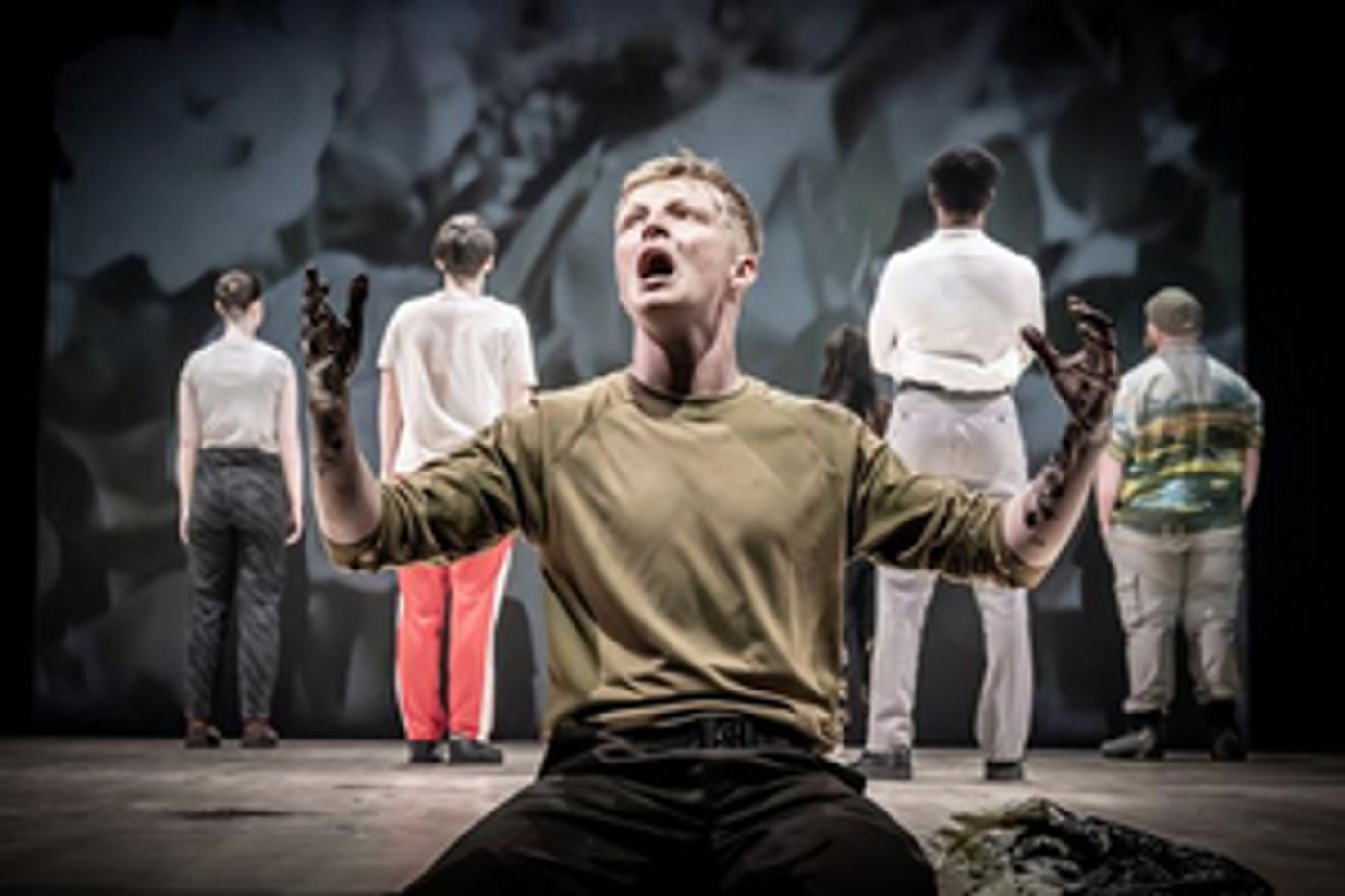Review: JULIUS CAESAR, Royal Shakespeare Theatre
The heavy hand of directorial intervention proves distracting

 A febrile political and meteorological climate, a populist leader surrounded by sycophants blatantly flirting with dismantling the checks and balances that have long held individual power in check and a population too easily swayed by the easy half-truths of those with plenty to gain from fomenting turmoil. 2023 AD? No, 44 BCE.
A febrile political and meteorological climate, a populist leader surrounded by sycophants blatantly flirting with dismantling the checks and balances that have long held individual power in check and a population too easily swayed by the easy half-truths of those with plenty to gain from fomenting turmoil. 2023 AD? No, 44 BCE.
Perhaps of all Shakespeare's plays, Julius Caesar requires the least intervention to make its relevance known, its warning to fragile states all too clear, its prediction that it will be played out again in different times and accents proves soothsaying of the highest order. Which is one reason (and there are others) why it's irritating to see the hand of director, Atri Banerjee, so front and centre in this production, set to tour nationwide in 2023. It's not that all his choices miss, but there's so many that some inevitably do and, more synthetically, it becomes a tiring watch all these imported bells and whistles, the acting swamped by the direction.
We open on stormy skies projected on to the side of one of those giant cubes that so many productions utilise these days. The ensemble step forward and writhe, twist and dance (movement by Jennifer Jackson) setting a theme that will show violence, physical and psychological, via abstract representation. But with swords referred to in the speech, merely miming a dagger in an empty hand just makes the play look like it's mounted by a school with an overly officious risk assessment. The stakes, never made palpable - even blood is represented by black oily stains that had me wondering more about washing cycles than the fall of the most powerful man in the world - fail to rise, everything required to be interpreted intellectually rather than felt viscerally.
Except the words. Weaselly betrayals and high-minded speeches pepper the play, as we see cynicism triumph over principles in a world in which alliances form and dissolve on very different calculations by their participants. Thalissa Teixeira gives us a noble Brutus, too high on his own supply of moral rectitiude to look beyond the conspirators' removal of a would-be tyrant and on into the abyss of the failed state on the other side of assassination. She speaks the words slowly enough for us to appreciate that she is actually thinking this through and still getting it so wrong, cleverness and judgement once again showing no correlation at all.
Understudy, Annabel Baldwin, played Cassius as a cold killer, resentful of Caesar's garnering of power, the personality clash evident. If she spoke the words a little too quickly (only Ella Dacres' super Octavius Caesar really caught the rhythms of Shakespeare's verses and prose fully) that impatience spoke to her character's long-held resentment, allowed to grow by Julius who well-recognised her danger but ignored it too long - as leaders so often do.
William Robinson is good on catching Mark Antony's jockish persona (it's clear why the arrogance of Brutus dismissed him as a lightweight, despite the protests of Cassius) but we never see the charisma that rallies the people to revolution. His funeral oration has something of Andrew Scott's unforgettable intimacy as Hamlet, but the men are very different and their key speeches advance different aspects of their psychologies.
And that leads to the strangest decision - the absence of hoi polloi. Just one actor (Niamh Finlay) represents the malleable mob of the frightened masses, the tinder that Mark Antony sparks into a self-serving civil war. We never see the clay that his duplicitous rhetoric moulds into weapons, the people who, these days, tune into the rabble-rousers on cable "news" stations, who pound the keyboards on social media platforms, who are recruited as foot-soldiers in manufactured culture wars. We need to be swept along with them towards collective madness - instead they're so far removed as to be invisible.
Whilst, for perfectly understandable reasons, this play above all demands gender-blind casting, as with The Globe's disastrous production last summer, the issue of gendered nouns and pronouns sometimes changing and sometimes staying as written disrupts the metre of the text and sets up an opposition between what we see and what we hear, jarring us into considering matters extraneous to the narrative. Maybe there's no way of solving this conundrum and we'll get used to it, but "She is an honourable man" (or words to that effect) is probably always going to feel like missing a step on a staircase.
What saves the production is the sheer strength of the source material, the forensic analysis of how power is mediated between individuals in a shaky political environment. So strong is that heart of the play that it survives, even flourishes, despite and not because of decisions that too often import complexity and sensibilities that add little beyond distractions. Rather like Brutus himself, the production shows that bravery and boldness do not necessarily bring success in execution for all the good intentions that underpinned conception.
Julius Caesar is at the Royal Shakespeare Theatre, Stratford Upon Avon until 8 April and then on tour
Photo Credit: Marc Brenner
Reader Reviews
Videos

